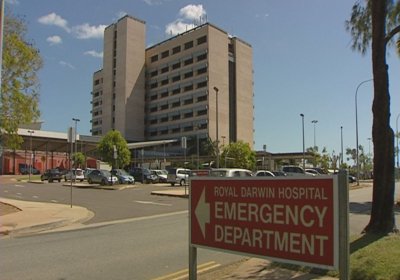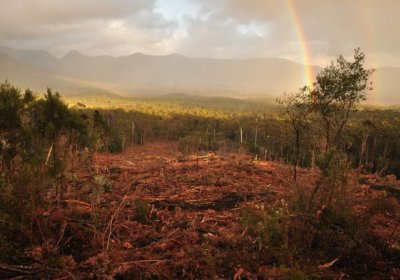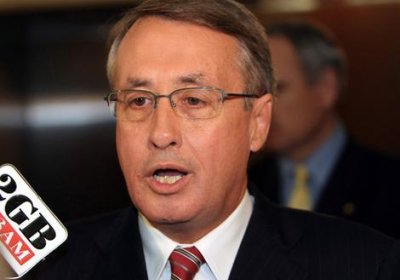The federal immigration department said on March 20 that it would bring all asylum seekers under a “new single protection visa process”. From March 24, refugees that arrive by boat would be able to put their cases for refugee status to the same body — the Refugee Review Tribunal — as those who arrived by plane.
Since former Liberal prime minister John Howard excised large parts of Australia’s migration zone in 2001, asylum seekers that arrived by boat were taken to the Independent Merits Review (IMR) system.
Australia
The New South Wales Liberal government said on March 11 that it planned to force schools to bear the responsibility for its latest funding cuts.
The government did not consult the NSW Teachers Federation (NSWTF) before releasing the “Local Schools, Local Decisions” and “Empowering Local Schools” initiatives, which it claimed would deliver “autonomy” to local public schools.
In reality, the move is a smokescreen that forces public school principals to implement the government cuts of $250 million a year.
In response to timber industry lobbying, independent MP Rob Oakeshott moved a motion in federal parliament to allow foresters to claim Renewable Energy Certificates for burning native forests for power.
The vote was lost on March 19 on a casting vote from the Speaker of the House Peter Slipper. The Labor Party, Greens, and independent MPs Andrew Wilkie and Tony Windsor voted against the motion. The Coalition voted for it.
Mental health workers voted to escalate industrial action in two weeks unless Ted Baillieu's Coalition government begins to seriously negotiate with their union.
The Health and Community Services Union (HACSU) covers psychiatric nurses, social workers, occupational therapists, psychologists and support staff. The Australian Nursing Federation covers some mental health nurses as well.
On March 9, Gunns Ltd notified the Australian Stock Exchange that potential investor Richard Chandler Corporation pulled out of its bid to buy a 40% stake in the company.
The Singapore-based investment firm of New Zealand millionaire Richard Chandler had planned to invest $150 million in the company. But it dropped the plan after consulting with stakeholders and communities.
The news was welcomed by environmentalists as another big setback for Gunns’ plans to get its $2.3 billion Tamar Valley pulp mill started in northern Tasmania.
The Northern Territory’s peak doctors’ body says Darwin’s main hospital is struggling to cope with up to five refugees a day coming in for treatment for self-harm, mental illness and chronic anxiety.
After three weeks of action, warehouse workers at the Sigma pharmaceutical Melbourne plant returned to work on March 21. Workers fended off attempts by the company to abolish afternoon and night shift loadings. They also won a 4% pay rise.
The workers, members of the National Union of Workers at the Rowville plant in Melbourne’s south-eastern suburbs, had rarely been on strike.
For more than 100 days, Miranda Gibson kept a 24-hour vigil 60 metres up a gum tree. Dubbed the ObserverTree, it is in Tasmania's logging coupe TN044B, whose steeply forested slopes have been earmarked for cable logging.
The tree is in an area that is being assessed for reserve status under the Tasmania forestry peace deal. From the platform, Gibson can see areas of clearfelled forest around her.
The Tasmanian and federal governments signed an Intergovernmental Agreement (IGA) last August that promised immediate protection for 430,000 hectares of high conservation value forest.
But it also agreed to continue supplying the industry hundreds of thousands of cubic metres of sawlogs and veneer peeler logs. The agreement included more than $250 million in finance to restructure the timber industry.
For many months now, major party politicians and the big business media have sung paeans to the Lucky Country’s luckiest mining bonanza yet, riding the coat-tails of the rapid industrialisation of China and India.
Federal treasurer Wayne Swan told the National Press Club on March 5: “Asia’s enormous appetite for our mineral commodities drives an investment pipeline in the resources sector worth $456 billion.
Australian Treasurer Wayne Swan said on March 20 that his government’s Minerals Resource Rent Tax (MRRT) was “central to the government’s plan to spread the benefits of the mining boom to more Australians for generations to come”.
Lauding the tax, which had passed through parliament the day before, he said the MRRT was about “ensuring all Australians share in the benefits of the mining boom, not just a fortunate few”.
The planned expansion of coalmining in Victoria has led the member for Bass, Liberal MP Ken Smith, to oppose his own party on the issue.
Bass Coast Shire Council said it “is totally opposed to new mining of coal, and to gas extraction associated with coal (unconventional gas), within the shire,” in a resolution on March 21.
The motion asked the government to exempt land within the shire from coal and unconventional gas exploration or mining licences.
- Previous page
- Page 755
- Next page









